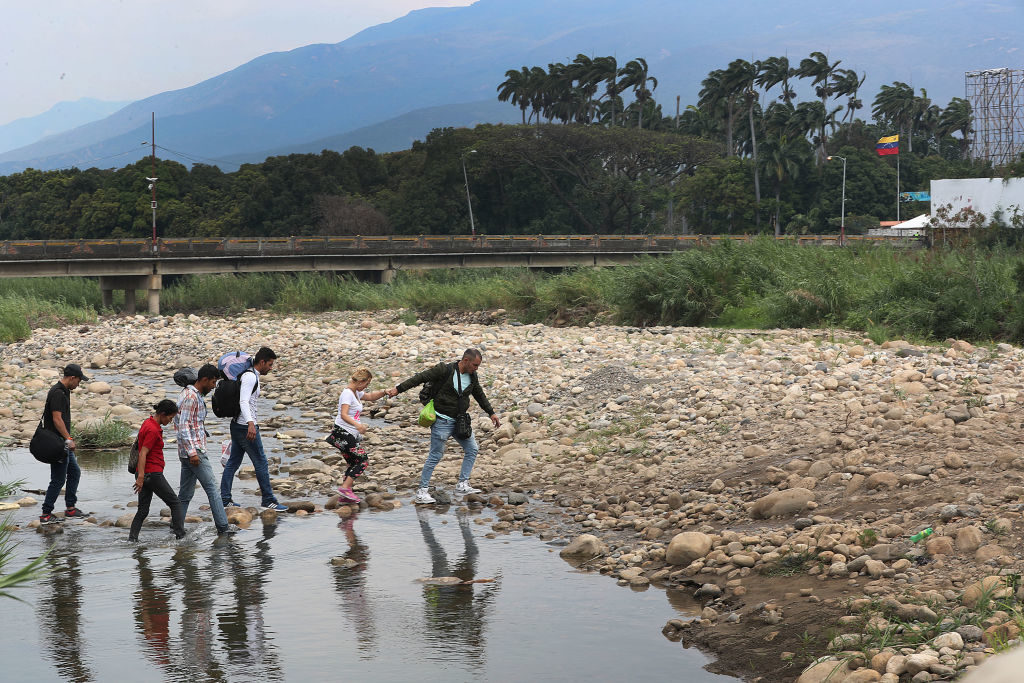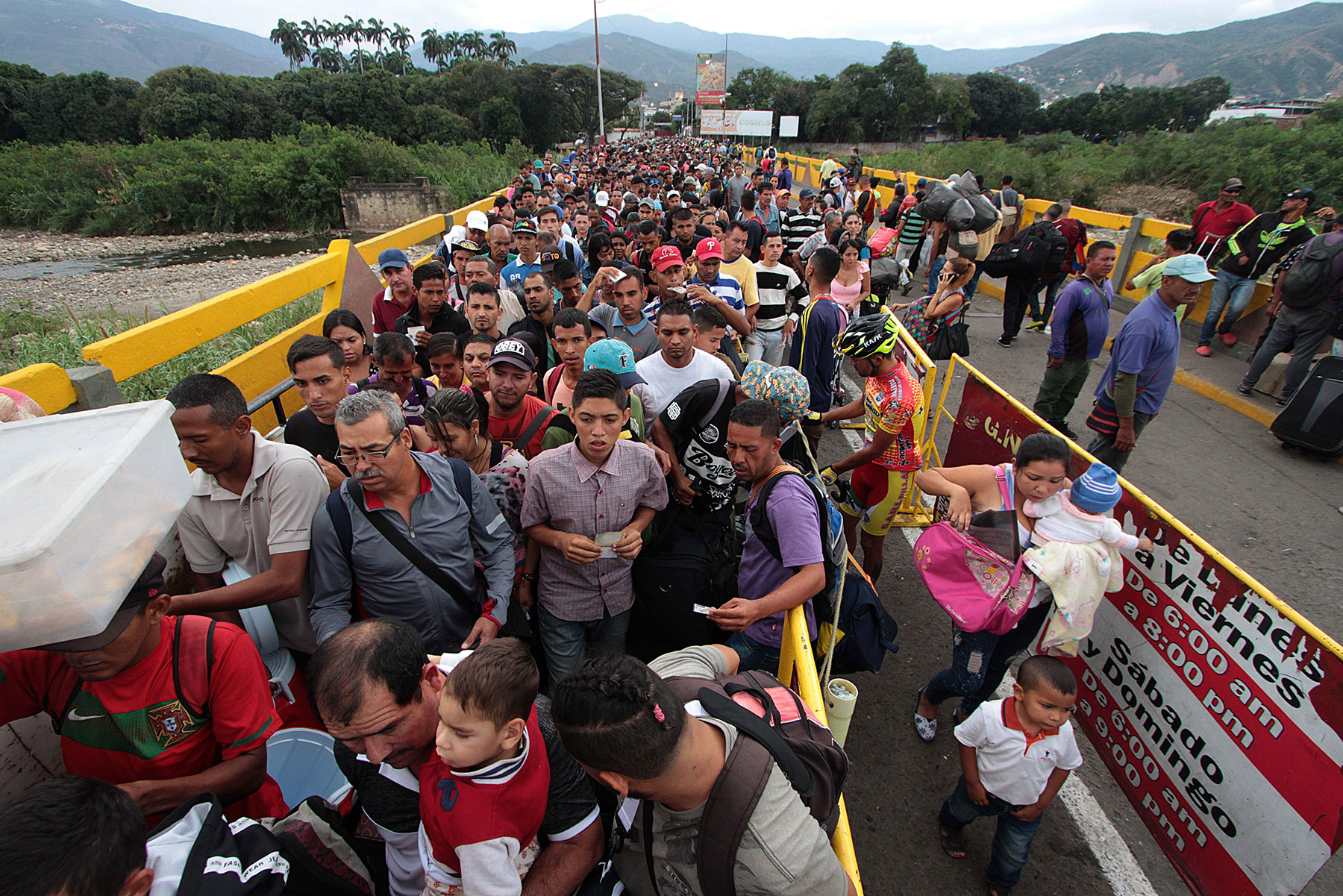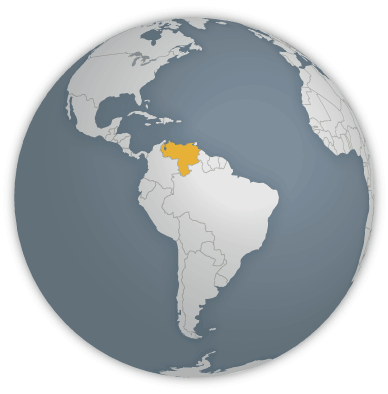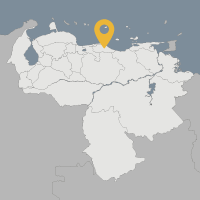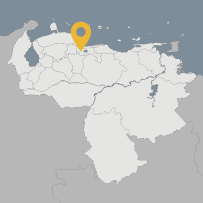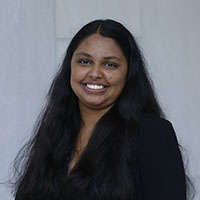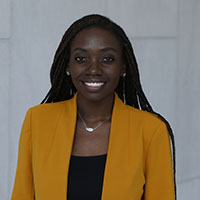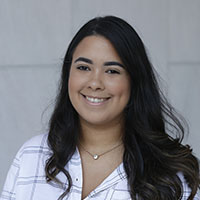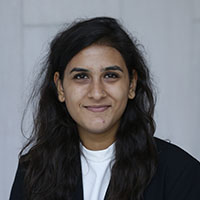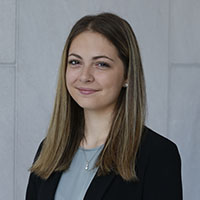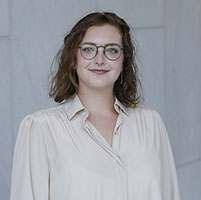Anderson Suarez is one of many who has crossed the Venezuelan border into Colombia in recent years. At the age of 20, he took on the responsibility of financially supporting his entire family by working abroad. The hardest part of his 800-mile journey was knowing that he was most likely leaving behind everything and everyone that was his home.
“While there are many people [in Colombia] who have welcomed us, I will never feel at home again,” Suarez said. “I probably will never be able to go back to Venezuela.”
But Suarez believes he was luckier than most. He was able to save some money for a bus ride to the border. “But the reality for most others is different,” he said. “The quantity of Venezuelans that walk to the Colombian border is alarming.”
Suarez is one among the more than four million Venezuelans estimated to have fled the country since 2014, amid a political crisis, deteriorating economy, breakdown of social institutions, and widespread food and medicine shortages.
The breaking point for Suarez came when his father died in a car accident and he could not earn enough money in Venezuela to support his widowed mother and brothers. He then entered neighboring Colombia through one of a few hundred trochas―hidden and unauthorized paths along the border―hoping to find economic opportunities that would allow him to support his family.
Why People Are or Are Considering Leaving: A Man-made Crisis
Currently in Washington, DC, USA
Associate Director of the Adrienne Arsht Latin America Center at the Atlantic Council
Currently in North Carolina, USA
Construction contractor
Primary school teacher
Stay-at-home mother
Humanitarian crisis – Extreme shortages of food and medical supplies, with growing rates of undernourishment.
Violence – One of the highest rates of homicide in the world and increasing rates of kidnapping and robbery.
Economic collapse – 90 percent of Venezuelans live under the poverty level, while hyperinflation is projected to reach 10 million percent by the end of 2019.
Human rights violations – Hundreds of political prisoners held by the Maduro regime and illegal detainment of many protesters.
Collapse of public services – Power outages and lack of water, lasting weeks at a time.
Social control – Use of new identification cards that facilitate tracking social, political, and economic behaviors.
Venezuela’s downturn has been rapid and steep. Its GDP per capita has declined by more than 56 percent since Nicolas Maduro took over as Venezuela’s president in late 2013. Inflation has been so drastic that a cup of coffee costing 0.01 Bolivars in 2016 cost 10,000 Bolivars by late August 2019―despite the dollar equivalent of that cup of coffee remaining essentially the same. Hyperinflation has left millions of Venezuelans struggling to make ends meet.
Many Venezuelans continue to fear political persecution. Despite protests and demonstrations over the past five years calling for Maduro to step down, he has held onto power by using the allegiance of top military leaders. Maduro has accomplished this through a brutal apparatus of repression against perceived political threats. Among the first wave of Venezuelans to leave were Maduro’s political opponents fleeing persecution by the regime.
David Smolansky, the former mayor of the El Hatillo municipality in Caracas, was one such opponent. He fled the country in 2017 after receiving multiple threats on his freedoms and his life. He now lives in exile in Washington, D.C.
“They were persecuting me for years,” Smolansky said. “I have seen so many mayors, leaders and students that were illegally detained and forced into exile. When that moment came, I remember I wrote a tweet that said, ‘Now is my number.’ Everyone who’s against the regime has a number. It just depends when it’s time.”
Moises Rendon, director of the Future of Venezuela Initiative at the Center for Strategic and International Studies (CSIS), has also seen his home country change rapidly.
“Venezuela had everything to offer,” Rendon said. “It had the natural resources, it had the human capital, it had a booming economy, it had the infrastructure to be one of the most developed, sophisticated countries in the region. But now, for man-made reasons, [it] is all [in] ashes.”
Who is a Refugee?
Refugee
The 1951 Convention lays out the rights and protections afforded to refugees, including “access to the courts, to primary education, to work, and the provision for documentation.” However, it does not define how parties to the treaty should determine whether individuals meet requirements of a “refugee,” leaving the final status to be decided by each state.
Asylum seeker
An asylum seeker is a person who has applied for asylum status but has not yet been granted asylum in their host country. It can take months or even years for asylum seekers to get a court case to determine their status. In the meantime, they are sometimes granted the right to legally be in the country but do not receive the same protections and benefits as a refugee.
Migrant
An umbrella term which, according to the International Organization for Migrants, refers to individuals who were not forced to leave their homes but instead chose to leave.
Despite having faced persecution and violence at home, most Venezuelans who have left the country in recent years have not been internationally recognized as refugees. That designation would grant them important protections and assistance. Instead, they find themselves in a “refugee-like” situation that limits their access to rights and resources during their displacement.
Some experts see this small difference in language as a crucial factor in the kinds of support Venezuelans are eligible for when they enter a new country. It may also affect the amount of international aid pledged by countries outside the region.
“Attention globally would focus on the new country that has refugees, which is Venezuela,” CSIS’s Rendon said.
“I think is an important step, not only from the funding perspective, but from a human rights perspective, to help Venezuelans have the right to identity, the right to work, and the right to live in a human condition in [their host countries].”
Following World War II, the United Nations created the Convention Relating to the Status of Refugees, a key treaty that defines the term “refugee.” It also specifies the international rights of the displaced and sets out the legal obligations the 144 signatory countries have to protect them.
That document was broadened in 1967 and again in 1984, when 10 Latin American countries took the extra step of signing the Cartagena Declaration on Refugees. The Cartagena Declaration broadened the categories under which persons could be considered refugees to include those subjected to “generalized violence, foreign aggression, internal conflicts, massive violation of human rights or other circumstances which have seriously disturbed public order.”
According to Erol Yayboke, deputy director of the Project on Prosperity and Development at CSIS, those fleeing Venezuela should be considered “refugees” under those international agreements.
“If you look at the Cartagena Declaration, what you are seeing is a constant reaffirmation that people who are fleeing from home, like Venezuelans, should be considered refugees,” Yayboke said. “But that’s not actually resulting in policies and laws that support that refugee status by all who have affirmed the declaration.”
While the benefits and protections accorded to refugees vary across host countries, being recognized as a refugee would allow individuals to work in the host country, pursue educational opportunities for themselves and their children, and access public services.
Despite the lack of official refugee status, migrants may be eligible for different forms of status, including temporary protected status and temporary work visas. Such designations can help migrants, but the processes are often confusing and ever-changing, require extensive documentation, and vary widely across countries. Many Venezuelan migrants thus end up without a defined status during their journey and at their destination.
Lack of status is not only a problem for Venezuelans but also for the national security of host nations. According to Yayboke, a lack of status only increases the dangers to migrants, both during and after their journey. This puts unclassified Venezuelans at greater risk for human trafficking, violence, and manipulation.
“Many migrants hire smugglers to avoid movement difficulties, but trusting a smuggler also comes with its own inherent risks,” Yayboke writes in a recent report. “These smugglers provide a service in high demand . . . [while] bolstering their capabilities to traffic in weapons, drugs, and any number of other illicit goods.”
While Yayboke believes that providing immediate refugee status for the four million Venezuelans who have fled the country would open up access to important resources, he adds that it could also create a new set of problems.
Several factors—the high number of people fleeing at a rapid rate, host-country fatigue, and domestic fears—create risks to using the label “refugee.” Providing this official status insinuates a more long-term stay that receiving countries—which often have their own political, social, and economic concerns—may not be able to offer.
For example, in neighboring Caribbean island countries such as Aruba and Curaçao, Venezuelans now account for large portions of the local population. This has created major challenges for the governments of those countries and has resulted in multiple instances of public backlash against Venezuelans.
For Rendon, this is further proof that, in his words, “the Venezuelan crisis has become a regional crisis.”
Living in Limbo
In a guidance note issued in 2018, the Office of the United Nations High Commissioner for Refugees (UNHCR) encouraged host countries to adopt measures such as temporary protection or stay arrangements while they adapt their systems to accommodate the surge of Venezuelans. While most neighboring countries were receptive to Venezuelans during the early days of the crisis, they are becoming less accommodating―and sometimes hostile―as the crisis wears on.
Colombia has received over 1.3 million Venezuelan migrants―more than a quarter of the total outflow―and has maintained the region’s most receptive policy, according to Rendon.
However, even such generosity comes with limits.
Suarez, who migrated to Colombia without any documentation, was given a work permit that enabled him to work as a remodeling contractor. He lacks access to health provisions and resettlement options, however, that would normally be granted to someone with refugee status fleeing from a similar situation.
Additionally, there have already been signs of compassion fatigue among neighbors like Ecuador, Chile, and Peru, all of which now require Venezuelans to have a valid passport and visa to enter the country. Experts fear that South and Central America–and parts of the Caribbean–are beginning to close their doors to Venezuelans. Incidents of xenophobic behavior toward Venezuelans are on the rise in many parts of the region.
Colombian columnist making a public plea for desperate Venezuelans to stop getting pregnant. Xenophobia goes mainstream in one of the most important papers in Colombia. Asco. https://t.co/Bb2OrWtp4V
— Eli Lopez (@elopezgross) June 13, 2019
Even Colombians are growing weary of the staggering immigration rates. According to a recent Gallup Poll, 55 percent of people surveyed disagreed with the government’s immigrant-friendly policies―an increase of 16 percentage points from earlier in the year. Suarez is familiar with this burgeoning hostility in his new country.
“I have experienced many instances of [xenophobia],” Suarez said. “Of course it’s understandable because there are Venezuelans who have come to Colombia and have stolen or committed crimes. I have been forced to tell [Colombians] that not all Venezuelans are bad.”
The new restrictions from neighboring countries are particularly concerning as the breakdown of social institutions in Venezuela has made it difficult and prohibitively expensive for many Venezuelans to obtain the required documentation.
For example, a Venezuelan passport officially costs four times the monthly minimum wage, though connections to ministers and bribes are often required for a person to obtain it―making it far more expensive. Access to supporting documentation, such as birth and marriage certificates, can be similarly difficult to obtain and excludes many Venezuelans from a legal path to neighboring countries.
Applying for asylum is also a risky proposition for many Venezuelans. In Colombia, applicants must offer a detailed and documented account of what made them leave their country, in addition to proper legal paperwork. If an applicant’s case is not accepted by the host country, they are often forced to return to their home country within 30 days.
Due to the high amount of risk, many Venezuelans settle for short-term provisions that allow them to momentarily support themselves and, often, families back in Venezuela―or they simply opt to live in the shadows.
Thinking Long-Term
Despite the ongoing crisis, Smolansky, now the coordinator of the Organization of American States’ Working Group on the Crisis of Venezuelan Migrants and Refugees, believes that many Venezuelans want to eventually return home.
“I don’t have children,” Smolansky said. “I would love to have my children in Venezuela. But my obsession is to give them a country with freedom and no restrictions. To give them a country with opportunities, with justice and no impunity. To give them a country [that is] safe, and not insecure.”
Many experts do not see a clear solution to the complicated issue of returning Venezuelans home. However, one piece of this puzzle is to bolster neighboring countries’ economic and social stability through coordinated international action, which would in turn allow them to better assist displaced Venezuelans. Experts have also pointed to the value of incentivizing Venezuelans living abroad, such as expatriate doctors and lawyers, to get involved and help.
“The way of responding to the Venezuelan crisis is not just providing medical kits as humanitarian aid,” said Yayboke. “We have to use all the tools in our toolkit including trade preferences for countries that are on the front lines of this and providing concessionary loans from the IMF.”
Yayboke also underscored the importance of providing more funding for multilateral organizations like the UNHCR and the International Organization for Migration to support host countries. The UNHCR has asked for $737 million in 2019 to strengthen the capacity of host countries such as Colombia, encourage socioeconomic and cultural integration, and provide direct emergency assistance. As of August, they had received less than one-third of that request, leaving the agency’s response plan severely underfunded.
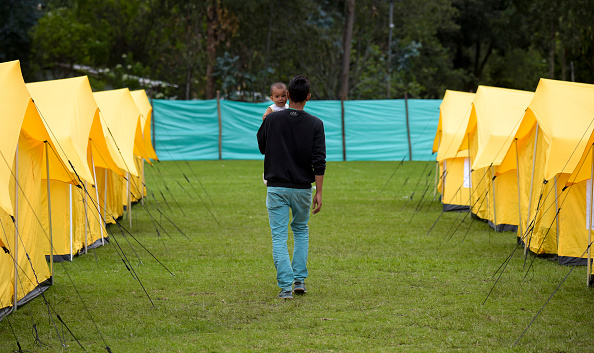
Beyond the humanitarian response plan, both Yayboke and Rendon believe a comprehensive solution to the migrant crisis in Venezuela must address the root causes of the issue―namely the economic and political situation in Venezuela―in order to bring back those who have emigrated.
Back in Colombia’s capital, Bogotá, Suarez has begun to build a new life for himself. Even without formal status or identification, he is working as a remodeling contractor and now has his own room in a house with other migrants. But day-to-day life remains challenging.
“I do send money to my brothers and my mom,” Suarez said. “However, what is left over is only enough for me to survive. There are times when I have to pay my rent, and in those moments, I can’t support them as well.”
Suarez believes he has not been dealt the worst set of cards among those migrating from Venezuela, but with no legal status to protect his right to live and work in Colombia―which has its own political exigencies―a stable future is far from guaranteed. As a migrant with no formal status, his ability to work could be taken away if the Colombian government changes its policy on migrants working without legal documentation.
However, shifting the language used to describe the Venezuelans fleeing the country could help change that. The term “refugee” acts as a spotlight―one that Venezuelans have not enjoyed. Despite having the second largest number of displaced people in the world, Venezuelan migrants have received less funding, less media coverage, and fewer protections than those in comparable situations who are considered refugees. If Suarez and others in the Venezuelan diaspora were granted the same treatment, life might just be a little less precarious.
